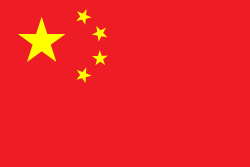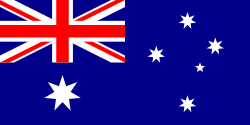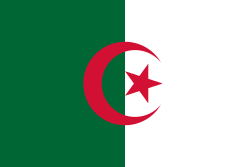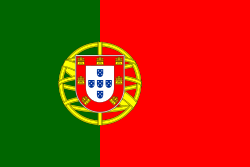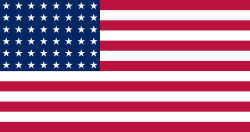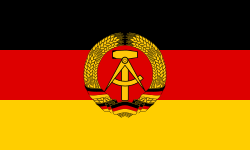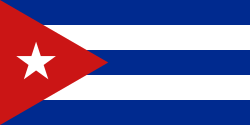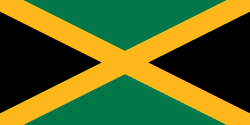110 meter häck för herrar i friidrott vid olympiska sommarspelen 1984
| Herrarnas 110 meter häck vid de XXIII:e olympiska sommarspelen | ||||
| Anläggning | Los Angeles Memorial Coliseum | |||
|---|---|---|---|---|
| Datum | 5 augusti 1984 (kval och kvartsfinaler) 6 augusti 1984 (semifinaler och final) | |||
| Deltagare | 26 från 17 nationer | |||
| Vinnartid | 13,20 OR | |||
| Medaljörer | ||||
| ||||
| ||||
| ||||
| ← 1980 1988 → | ||||
| Friidrott vid olympiska sommarspelen 1984 | ||||
| ||||
|---|---|---|---|---|
| ||||
| ||||
| ||||
| ||||
| ||||
| ||||
| ||||
110 meter häck herrar vid olympiska sommarspelen 1984 i Los Angeles avgjordes 3-6 augusti.
Medaljörer
| Gren | Guld | Silver | Brons | |||
| 110 meter häck | Roger Kingdom | 13,20 (OR) | Greg Foster | 13,23 | Arto Bryggare | 13,40 |
Resultat
- Q innebär avancemang utifrån placering i heatet.
- q innebär avancemang utifrån total placering.
- DNS innebär att personen inte startade.
- DNF innebär att personen inte fullföljde.
- DQ innebär diskvalificering.
- NR innebär nationellt rekord.
- OR innebär olympiskt rekord.
- WR innebär världsrekord.
- WJR innebär världsrekord för juniorer
- AR innebär världsdelsrekord (area record)
- PB innebär personligt rekord.
- SB innebär säsongsbästa.
- w innebär medvind > 2,0 m/s
Final
| Placering | Final | Tid |
|---|---|---|
| 13,20 | ||
| 13,23 | ||
| 13,40 | ||
| 4. | 13,45 | |
| 5. | 13,55 | |
| 6. | 13,71 | |
| 7. | 13,80 | |
| 8. | 14,15 |
Semifinaler
| Placering | Heat 1 | Tid |
|---|---|---|
| 1. | 13,24 | |
| 2. | 13.56 | |
| 3. | 13.62 | |
| 4. | 13.88 | |
| 5. | 13.89 | |
| 6. | 14.21 | |
| 7. | 14.26 | |
| — | DNS |
| Placering | Heat 2 | Tid |
|---|---|---|
| 1. | 13,24 | |
| 2. | 13.30 | |
| 3. | 13.52 | |
| 4. | 13.85 | |
| 5. | 13.86 | |
| 6. | 13.86 | |
| 7. | 13.93 | |
| 8. | 14.15 |
Försöksheat
| Placering | Heat 1 | Tid |
|---|---|---|
| 1. | 13,35 | |
| 2. | 13.58 | |
| 3. | 13.75 | |
| 4. | 14.20 | |
| 5. | 14.44 | |
| 6. | 15.51 |
| Placering | Heat 2 | Tid |
|---|---|---|
| 1. | 13,53 | |
| 2. | 14.02 | |
| 3. | 14.04 | |
| 4. | 14.07 | |
| 5. | 14.32 | |
| 6. | 14.67 |
| Placering | Heat 3 | Tid |
|---|---|---|
| 1. | 13,53 | |
| 2. | 14.05 | |
| 3. | 14.07 | |
| 4. | 14.29 | |
| 5. | 14.56 | |
| 6. | 14.93 |
| Placering | Heat 4 | Tid |
|---|---|---|
| 1. | 13,24 | |
| 2. | 13.45 | |
| 3. | 13.91 | |
| 4. | 14.00 | |
| 5. | 14.05 | |
| 6. | 15.75 |
Referenser
| ||||||||
| |||||||||||||
Media som används på denna webbplats
An icon that represents a gold medal
An icon that represents a silver medal
An icon that represents a bronze medal
Kanadas flagga, införd 1965; denna version med Pantone‐nyanser. Nuvarande utformning ersatte den tidigare kanadensiska Red Ensign.
Chinese Taipei Olympic Flag. According to the official website of Chinese Taipei Olympic Committee, Blue Sky(circle) & White Sun(triangles) above the Olympic rings is neither the National Emblem of the Republic of China, nor the Party Emblem of Kuomintang (KMT), but a design in between, where the triangles do not extend to the edge of the blue circle, as registered at International Olympic Committee in 1981 and digitally rendered in 2013. Besides, the blue outline of the five-petaled plum blossom is broader than the red one. Moreover, the CMYK code of the blue one and the Blue Sky & White Sun is "C100-M100-Y0-K0", and different from the Olympic rings (C100-M25-Y0-K0). Note that it's the only version recognized by IOC.
Flag of Portugal, created by Columbano Bordalo Pinheiro (1857–1929), officially adopted by Portuguese government in June 30th 1911 (in use since about November 1910). Color shades matching the RGB values officially reccomended here. (PMS values should be used for direct ink or textile; CMYK for 4-color offset printing on paper; this is an image for screen display, RGB should be used.)
Den Dominikanska republikens flagga består av ett vitt centrerat kors som sträcker sig hela vägen ut till flaggans kant. I mitten på korset sitter ett emblem med en bibel, ett gyllene kors och sex dominikanska flaggor. Emblemet är omgivet av olivkvistar och palmblad. Under emblemet står ”Republica Dominicana” och ovanför ett band med landets mottot ”Dios, Patria, Libertad” (”Gud, Landet, Frihet”).
US Flag with 44 stars. In use 4 July 1891–3 July 1896. Created by jacobolus using Adobe Illustrator, and released into the public domain.
US Flag with 44 stars. In use 4 July 1891–3 July 1896. Created by jacobolus using Adobe Illustrator, and released into the public domain.
US Flag with 45 stars. In use 4 July 1896–3 July 1908. Created by jacobolus using Adobe Illustrator, and released into the public domain. This flag was used during the Spanish-American War.
US Flag with 45 stars. In use 4 July 1896–3 July 1908. Created by jacobolus using Adobe Illustrator, and released into the public domain. This flag was used during the Spanish-American War.
US Flag with 46 stars. In use 4 July 1908–3 July 1912. Created by jacobolus using Adobe Illustrator, and released into the public domain.
Other version: Image:US 46 Star Flag.svgUS Flag with 46 stars. In use 4 July 1908–3 July 1912. Created by jacobolus using Adobe Illustrator, and released into the public domain.
Other version: Image:US 46 Star Flag.svgUS Flag with 48 stars. In use for 47 years from July 4, 1912, to July 3, 1959.
Flag of South Africa, used between 1928 and 1982. It is identical to the 1982 to 1994 version except that the shade of blue is darker. It is also known as the "Oranje-Blanje-Blou".
Flag of Jamaica. “The sunshine, the land is green, and the people are strong and bold” is the symbolism of the colours of the flag. GOLD represents the natural wealth and beauty of sunlight; GREEN represents hope and agricultural resources; BLACK represents the strength and creativity of the people. The original symbolism, however, was "Hardships there are, but the land is green, and the sun shineth", where BLACK represented the hardships being faced.
The Egyptian flag (1972-1984). Also the flag of Libya (1972-1977) and Syria (1972-1980), when the three countries formed the nominal “Federation of Arab Republics”. (For a map of the federation, see Image:Esl.PNG.)
The Arab text in the scroll held by the “Golden Hawk of Qureish” reads Arabic اتحاد الجمهوريات العربية, ittiħād al-jumhūriyyāt al-`arabiyya, i.e. the Federation (literally “Union”) of Arab Republics — in a quasi-Kufic script (in its original form, with a very ornamental letter dal د).









